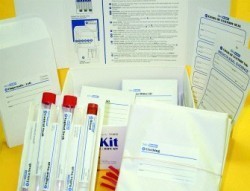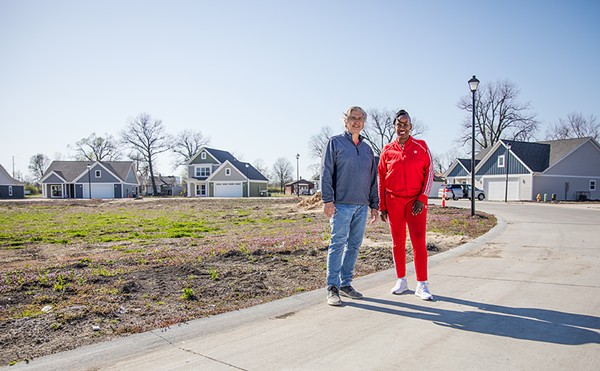Fifty-one.
Fifty-one people in St. Louis went to the police after being raped. Fifty-one people went to the hospital and submitted to an hours-long invasive procedure to collect physical evidence from the traumatic crime they'd just experienced. And 51 people are still waiting for their rape kits to be processed, from attacks as far back as February.
One woman, a survivor of a rape that went unsolved for more than fifteen years because her kit waited so long for processing, aims to find out what every city's number is. Natasha Alexenko of Long Island figures that determining the size of the country's backlog will be a key to eliminating it entirely.
And that, in turn, will put more rapists in jail.
"We know that it works," Alexenko tells Daily RFT. "Testing
rape kits and putting them into CODIS, the FBI database, can find
perpetrators. It works."
The rape kit backlog in this country has become big
news lately. The actress Mariska Hargitay, who plays Detective Olivia
Benson on Law and Order: SVU, has made eradicating the backlog her
personal crusade. And in New York, Alexenko is determined to find out
just how many rape kits sit on shelves where the evidence they contain
can't get a rapist off the streets.
Alexenko was raped in the
early 1990s in New York City. She reported her assault and underwent a
rape exam, where DNA evidence was collected from her body in the hours
after the attack.
Then, nothing happened for almost fifteen years. The
kit from her exam sat gathering dust, because New York didn't have the resources to
process all the kits. Finally, just months before the statute of
limitations on prosecution expired, New York police processed it. Her
perpetrator won't be eligible for parole until 2057.
Her
foundation, Natasha's Justice Project, has partnered with Stony Brook
University to determine the exact number of unprocessed rape kits in the
country. A report this spring from the National Institute of Justice
revealed that the exact number is unknown because many municipalities
have inefficient means for tracking the kits. But it estimated to be at
least 180,000 kits, and the cost of processing kits as well as
antiquated systems for tracking them are believed to be the cause.
Katie O'Sullivan, a spokeswoman for the St. Louis Metropolitan Police Department, tells Daily RFT
that St. Louis has 51 untested kits, with the oldest being from
February of this year. That's actually pretty good, when you consider
that, at the time the statute of limitations almost expired on Alexenko's
assault, New York City had a backlog of 17,000 kits, dating back many
years.
"We do use a computer system to track the kits,"
O'Sullivan writes in an email. "The kits are generally taken by a nurse
and transported to the lab by a police officer." Samples are analyzed at
the police lab, unless there's a need for toxicology information, in
which case the Missouri State Highway Patrol lab does the job. "The cost of
the actual kits is minimal," O'Sullivan writes.
After New York
City became aware of its huge backlog, the city devoted extra resources to
processing the kits. Now, they have no backlog. Alexenko figures that every
city can get there.
"With this research, we want to make sure
we're accurate and we're getting those numbers," she says. "We're not
here to point fingers, we're out to help."
After the data is
collected, within about a year, the foundation aims to help cities with
backlogs to partner with cities without backlogs. Then, with a grant
from Natasha's Justice, they can share strategies to eliminate the
buildup. Information from rape kits can go into the national database,
and justice can be served.
"The issue of backlogs is each rape
kit represents a human being, a victim of a violent crime who has gone
through the trouble of going to the hospital after their event and
sitting through a very invasive process," Alexenko says. "Each kit
represents a perpetrator."
Unprocessed Rape Kits: We've Got St. Louis' Number
[
{
"name": "GPT - Leaderboard - Inline - Content",
"component": "41932919",
"insertPoint": "5th",
"startingPoint": "3",
"requiredCountToDisplay": "3",
"maxInsertions": 100
}
]






